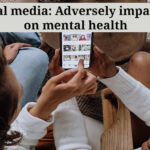Importance of social emotional learning is a must. UNICEF estimates 1 in 4 children in India is suffering from depression of some form.
Yual Noah Harari, the world renowned futurist and author writes, ‘it’s nearly impossible to predict, for parents of a child born today, what would constitute as required skills 30 years from now as much of what kids learn today will be irrelevant by 2050. The need thus is not be to learn new things, or invent new products and services but more often than not to invent yourself again and again’.


For a ‘young’ country like India currently this sounds ominous if we do not course correct soon. Almost 50% of the population is under 25 and over 25% in the age groups 1-14. We have an astonishing 260 million plus students in schools and 40+ million graduates each year. The worrying sign however is, 70% of the global employability requisites are not met in our current education system today and almost 75% of all graduates are unemployable.
There is a huge disconnect between what we are learning, what is required in the workplace today and an ever bigger gap in preparation for the future.
The reasons for these are many, lack of infrastructure, our obsession with marks and not skills, lack of teacher training to improve outcomes, focus on theoretical frameworks than practical applications etc. Add to that, that students need to excel all the time in an hyper competitive environment, leading to stress, low self-worth and identify issues bundled with fear of failure, social alienations and more.
UNICEF estimates 1 in 4 children in India is suffering from depression of some form and we have the undesired distinction of the highest suicide rates among teens with others moving towards violent behaviour, substance abuse and more. How do we then create a framework for not only imbibing skills that will not only help children fool proof their future, but also help them develop their agency and build a strong identity and value framework.
The Case for Social & Emotional Learning
Social-emotional learning or SEL, is a method of promoting holistic child development by teaching students skills such as self-regulation, persistence, empathy, self-awareness, and mindfulness
CASEL, the world’s leading research organization of SEL states that investments in SEL bring about:
1. Improvement in students’ social and emotional skills, attitudes, relationships, academic performance, and perceptions of classroom and school climate
2. Decline in students’ anxiety, behaviour problems, and substance use
3. Long-term improvements in students’ skills, attitudes, prosocial behaviour, and academic performance
4. Wise financial investment according to cost-benefit research
5. Definite improvement in student’s academic performances.
6. A $11 return on investment over time
SEL skills also are starting to top the most required in ‘hiring’ requisites globally, reiterated in studies by LinkedIn, Google and more as workplaces look for more leaders that demonstrate the ‘human’ side to business.
The NEP 2020 has made SEL mainstream however it does not find the space it deserves, even though data suggests that the benefits go way beyond academic performance. To ‘force’ a shift, an SEL council with well-funded ed-tech companies be created to develop and distribute programs for all stakeholders and moreover organizations could be encouraged to shift hiring criteria beyond grades and percentages.


Amit Zaveri
President – Learning Services
Uniform Junction











